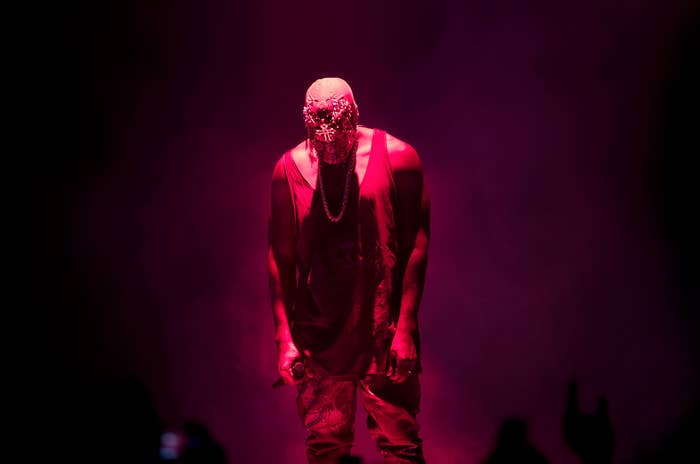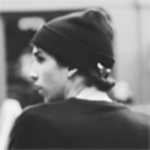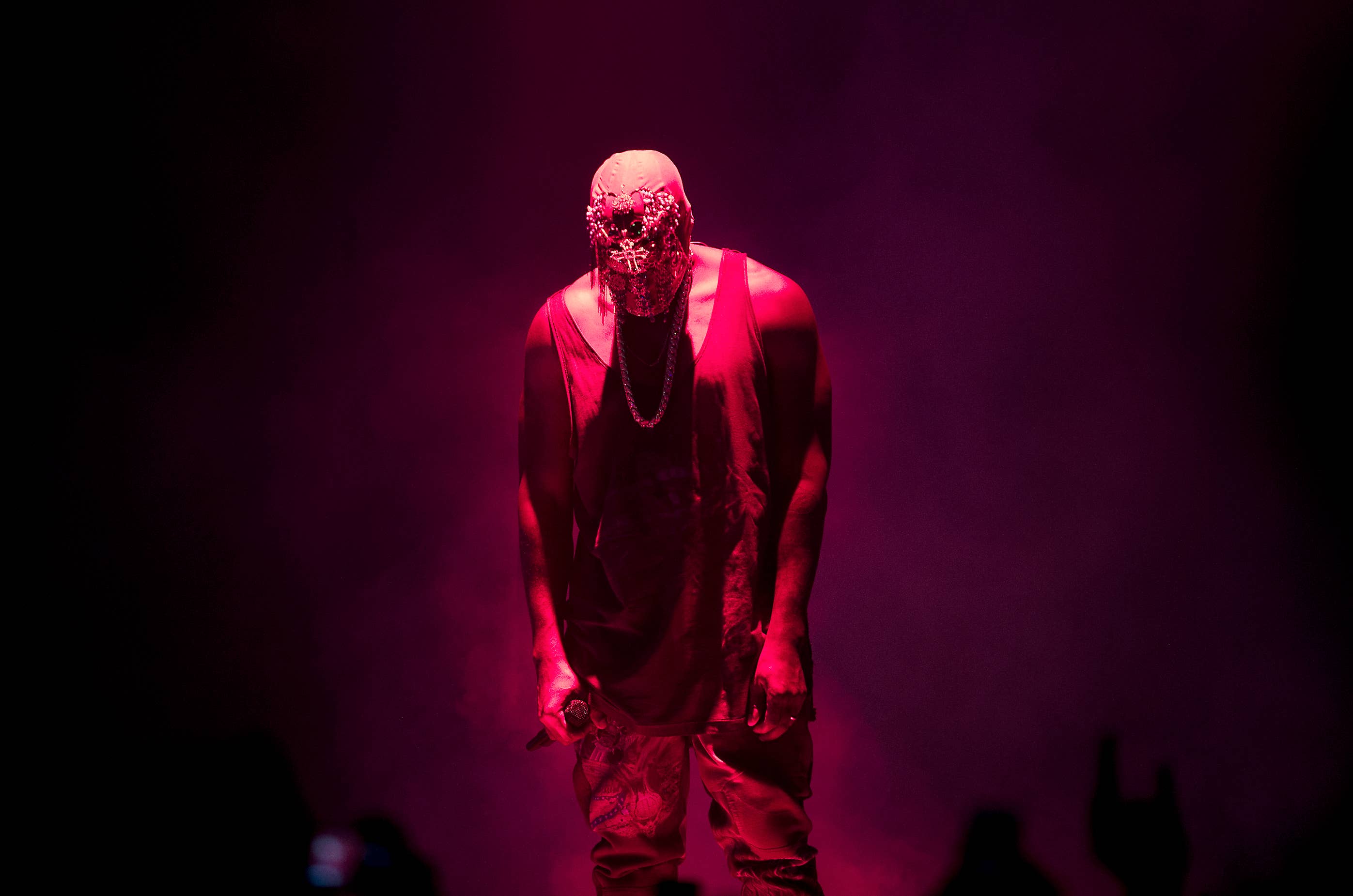
In 2017, we consume music at an insane pace.
When new albums come out, it's easy to get caught up in a rush to tweet hot takes and dub the music trash or classic before moving on to the next thing.
Cole Chuchna is doing exactly the opposite of this with his Dissect series—a serialized podcast that dedicates each season to diving deep and breaking down every detail of a single album, one song at a time. A one-man operation, Chuchna spends over 20 hours putting together each episode and hundreds of hours over the course of a season.
Taking advantage of a background in classical music composition and an incredible eye for detail, Chuchna sets the stage for each album he dissects by running through its cultural significance and context before analyzing every last lyric, chord progression, and sample.
After kicking off the series with a close look at Kendrick Lamar's To Pimp A Butterfly in season one, Chuchna has turned his focus to Kanye West's My Beautiful Dark Twisted Fantasy for the follow-up.
"A big goal of mine this season was to humanize Kanye, to reintroduce him as a human being first who just happens to be an incredible artist," Chuchna explains. "MBDTF is a great tool for that because so much of it thematically is Kanye trying to make sense of celebrity, trying to maintain his humanity through the good and evil of success."
"The way a masterful painter like Monet would study light and color is the same way Kanye studies and manipulates sound," he continues. "The textures, the harmonies, the way instruments interact with one another—he’s manipulating these things on a micro-level with a lot of thought and consideration. More than I ever expected to be honest."
After finishing with his full-time job each day, he works on the podcast in his garage after his wife and daughter have gone to bed. And despite the show's analytical, NPR-style tone, Chuchna's love and appreciation for the music he's dissecting shines through each episode.
"I would hope people leave Dissect with a greater appreciation of art. I would hope they come to respect hip-hop as an art form. I would hope they empathized with artists more, see them as real people who give us extraordinary gifts," he adds. "I would hope they’d be inspired to spend more time with the things they truly loved."
You can listen to the podcast on iTunes and Stitcher. Continue for our full interview with Chuchna.
How and when did you originally come up with the idea for Dissect?
The idea spawned in the spring of 2016. I found myself swiping and scrolling my nights away, always feeling a bit empty afterwards. I was spending too much time consuming too many things. It creates a kind of insatiable hunger for new content, including music. And I think we begin to disrespect art when we consume it in the same way we do our timelines. Dissect was created to counter this, if only in my own life. It forces me to spend a lot of time with one thing, not a thousand things.
Did you have any experience doing anything like this before?
I was a music composition major in college and used to spend hours studying a single classical composition. I’d research the composer, their life, the social and political climate at the time of writing the piece—all of it. I took those tools and applied them to a contemporary genre I’ve loved my entire life: hip-hop. I was curious to see if it could stand up to the same kind of scrutiny I’d applied to classical music. It does. Unequivocally, it does.
Why did you decide to start the series with To Pimp a Butterfly?
Being a relatively new genre, historically speaking, I’ve always been curious how hip-hop would evolve. There’s still so much untapped potential. I mean, what other genre of music can you say so many words in such a short amount of time? It has the potential for storytelling similar to opera.
Kendrick Lamar is pushing the genre of hip-hop to heights previously unreached, particularly in long form storytelling. All of his recent albums do this, but I was drawn toward TPAB because of the risk he took sonically as well as the very relevant social issues he speaks on. I learned so much about the world through that album. I learned so much about myself through that album. It deserves our time. A lot of our time. Dissect was created because of TPAB. It was the album that sparked the initial idea.
What about My Beautiful Dark Twisted Fantasy made you want to dissect it in Season 2?
Well, first the obvious: it’s a beautiful, masterful piece of modern art. Period.
But it was a tough choice for me personally because Yeezus is my favorite Kanye record. Ultimately, though, MBDTF works as a bridge between “old” Kanye and “new” Kanye, and I felt through this album I could showcase the best of both worlds.
Of course, Kanye is polarizing. A big goal of mine this season was to humanize Kanye, to reintroduce him as a human being first who just happens to be an incredible artist. MBDTF is a great tool for that because so much of it thematically is Kanye trying to make sense of celebrity, trying to maintain his humanity through the good and evil of success.
The attention to detail is truly incredible. The way a masterful painter like Monet would study light and color is the same way Kanye studies and manipulates sound.
Do you look at MBDTF differently now than you did when you started this season?
100 percent. We all know it’s a masterful album. But until you sit down and pick apart every lyric, every chord progression, every sample, you don’t know why it’s masterful. You just know how it makes you feel. And while that’s still the most important thing at the end of the day, it’s also important to know why it makes us feel that way.
I think I’m most impressed with the album on a purely compositional level. There are all kinds of advanced compositional techniques he and his team employ. The attention to detail is truly incredible. The way a masterful painter like Monet would study light and color is the same way Kanye studies and manipulates sound. The textures, the harmonies, the way instruments interact with one another—he’s manipulating these things on a micro-level with a lot of thought and consideration. More than I ever expected to be honest.
What have you learned about Kanye as a person and as an artist through this process?
Reading the accounts of his work ethic has been fascinating. You’d be hard-pressed to find someone who’s worked with Kanye and has not remarked on his work ethic or passion in the studio. The first to arrive, last to leave. Uncompromising. Bringing out the best in his collaborators. Creating a communal environment where all ideas are valid and encouraged.
Also, with my background in classical music, it was fascinating to realize the parallels to history’s greatest composers and Kanye West. Particularly Beethoven. Their personalities, their uncompromising approach to composition, the willingness to challenge the status quo. I’m convinced had Beethoven been born in our modern world, he’d be something like a Kanye West.
I make a conscious effort throughout the process to keep myself out of it as much as possible. I want the art to speak for itself.
What is one thing that you learned about MBDTF during your research that you didn't pick up on before the season? Or something specific that surprised you?
Aside from the musical aspects I spoke about, I didn’t realize the overarching narrative of the album was so tightly executed. I always knew there was a narrative going on, but there are small details that create these incredible connections from song to song. For instance, the imagined suicide on the end of “Power” transitions into the funeral music of “All the Lights (Interlude)” to the “bright light” after death experience of “All of the Lights.” That’s next level narrative storytelling, but it’s not so obvious unless you’re really paying attention.
What's your process for creating each episode?
I do a lot of preliminary research before starting the season. Once I get to individual episodes, I’ll usually start with the music. Researching the samples, figuring out the chord progressions and melodies. Just get a general sense of how the song was constructed. Then I’ll move to the lyrics. And that’s just literally going line by line, word by word, and pulling out what I can. I’m writing a script while doing all this and letting the music take me where it wants to go. That’s something I think about a lot while writing. It’s really easy to insert yourself and your opinions into the work of others. But I make a conscious effort throughout the process to keep myself out of it as much as possible. I want the art to speak for itself.
Once I’ve completed the script, I record in my crazy hot garage (seriously, it’s so hot in there). After I record the script, it’s just about editing and splicing it all together cohesively. It’s all very time consuming because I’m doing every step of the process myself.
How long does each episode take you, on average? How many hours would you guess the entire MBDTF season will take?
I estimate that each episode takes over 20 hours. And that doesn’t count the preliminary research I do before each season. So at 15 or so episodes this season, we’re talking around 300 hours, plus about a month’s worth of preliminary research.
I would hope people leave Dissect with a greater appreciation of art.
Do you have a day job? Where does all of this work fit into your day?
Yes, I have a full-time job. I also have a wife and two year old daughter. I work on Dissect at night after they go to bed. Needless to say, I live in a perpetual state of exhaustion.
If people like the show, what is the best way they can support you?
Just by listening, honestly. And telling their friends about the show. There’s no team behind this podcast, it’s just me, so any help I can get spreading the word goes a really long way. If they’re really into the show, they could support me on Patreon.
What do you hope people get out of this series? What is your main goal with all of this?
I would hope people leave Dissect with a greater appreciation of art. I would hope they come to respect hip-hop as an art form. I would hope they empathized with artists more, see them as real people who give us extraordinary gifts. I would hope they’d be inspired to purchase music again. I would hope they’d be inspired to spend more time with the things they truly loved.

